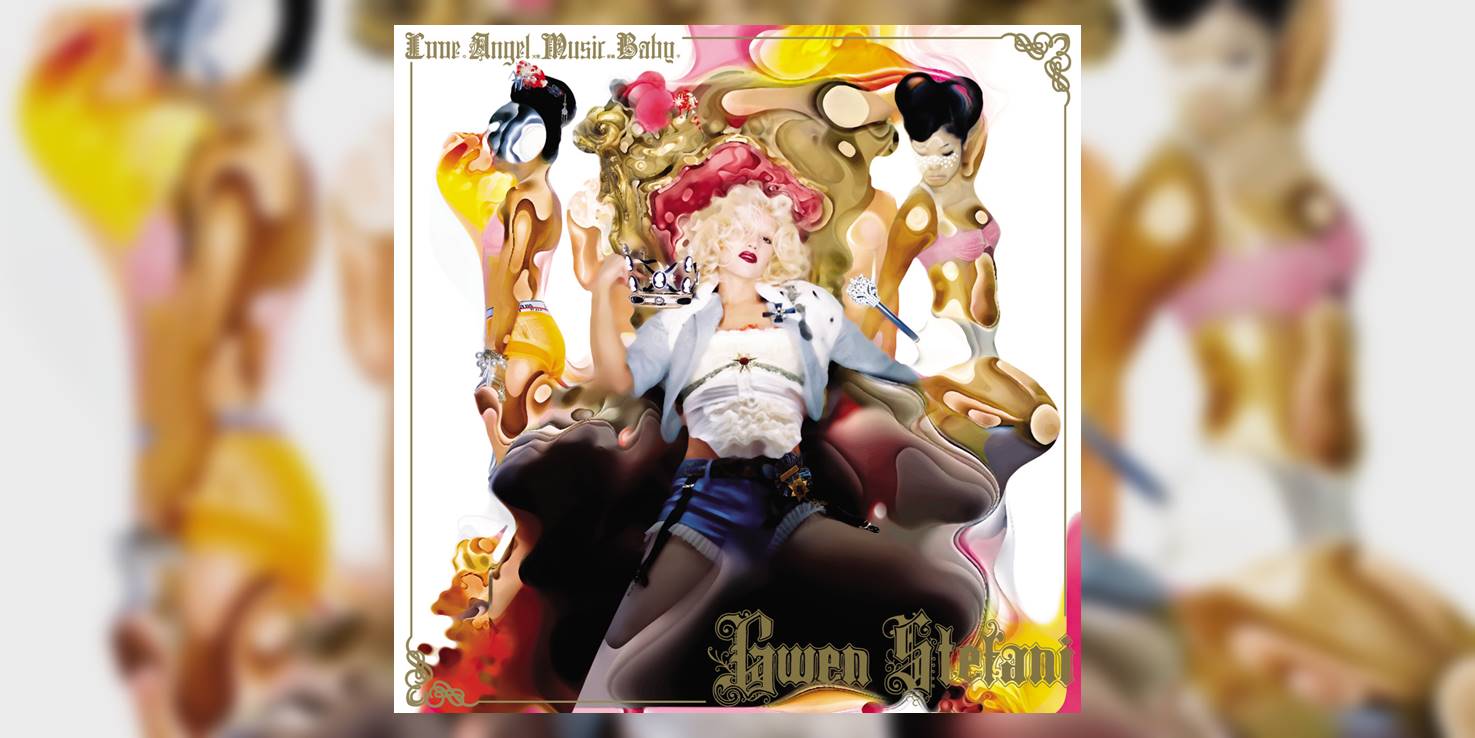Editor’s Note: The Albumism staff has selected what we believe to be 50 fantastic first solo albums recorded by artists who departed—or simply took a temporary hiatus from—their respective groups, representing a varied cross-section of genres, styles and time periods. Click “Next Album” below to explore each album or view the full album index here.
GWEN STEFANI | Love. Angel. Music. Baby.
Interscope (2004)
Selected by Kate Seldman
Gwen Stefani will always be a Doc Martens-rocking Rude Girl at heart. On her first foray into solo territory, though, she was no longer tied down by her No Doubt cohorts’ obsession with ska, and she was free to explore her love of pop more extensively.
2004’s Love. Angel. Music. Baby. is a glittering extravaganza of an album, chock-full of instant earworms (B.A.N.A.N.A.S, anyone?) and shiny electro-pop gems. Lead single “What You Waiting For?,” about Stefani facing writers’ block as she tried to come up with her first solo material, has a sweet urgency to it. One of Stefani’s strengths is her knack for writing lyrics everyone can relate to: sure, this is a song about an internationally famous rock star freaking out about going into the studio with Linda Perry, but when you listen to it, you feel like Gwen understands just how hard it was for you to sit down and write your college essay.
The shimmering, serene “Cool” is another infinitely relatable song—and, of course, it wouldn’t be a Gwen Stefani album without at least one song where she bares her soul about a previous relationship. In this case, she expresses her happiness that she and No Doubt bassist Tony Kanal have finally mended their friendship after the well-documented end of their tumultuous love affair.
Then, there’s “Harajuku Girls.” The song, with its breathy “Coo-coo!” ad libs, is so cotton-candy sweet that it makes your teeth feel like they’re going to fall out. Stefani’s cosigning of the Japanese street fashion movement meant that Harajuku style received worldwide acclaim, but looking back, it all feels a bit too much like appropriation. Let’s not even discuss Stefani’s hiring of four Asian women to mutely follow her around on tour.
“Bubble Pop Electric,” featuring OutKast’s André 3000 playing a rakish gentleman caller named Johnny Vulture, hits just the right balance of naughty and cute, as Stefani giggles to herself about the fun she and Johnny will have in the backseat on their date that night. 3000’s other cameo, on “Long Way to Go,” strikes one of the only solemn chords in this bubblegum-fest of an album, but its message—a worthy one, about interracial love—is lost in among the glitter and hullabaloo of the rest of the record.
Love. Angel. Music. Baby. is the archetypal Gwen Stefani album, with all the ingredients her future solo albums would contain: instant pop classics, soul-baring songs about love, and a sprinkling of truly cringeworthy moments. It also features a secret ingredient that would also show up on future albums—a song that masquerades as throwaway pop, but that actually resonates in a much deeper way, and ends up defining a certain moment in your life. For me, on this album, this song is “Cool.”
These songs are what make Stefani a true, honest, creative talent. And even if there’s sometimes only one per album, they’re always worth wading through the glitter for.
LISTEN:

